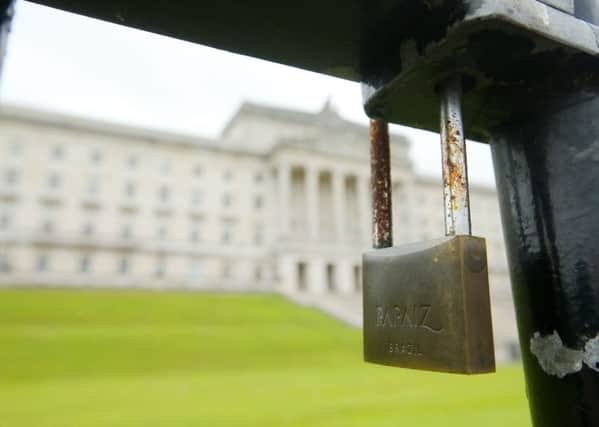First British-Irish conference in 11 years held


The two governments have issued a joint statement following the first formal meeting of the British-Irish Intergovernmental Conference in 11 years.
The meeting was called after pressure from Sinn Fein, the SDLP and the Irish government.
Advertisement
Hide AdAdvertisement
Hide AdBeforehand, the DUP had played down the significance of the London meeting, describing the forum as a “talking shop” with no executive powers to decide on any of the issues which are the responsibility of Stormont’s dormant institutions. However, some other unionists are concerned at the potential for the body to stray beyond its legal remit and give the appearance of joint British-Irish rule of Northern Ireland.
The last such meeting was held in Dundalk, County Louth, in February 2007..
The conference have now issued a ‘joint communique’ setting out the areas of discussion.
It lists ‘legacy’, ‘security co-operation’, ‘east-west matters’, and ‘political stability’ as the areas discussed.
Advertisement
Hide AdAdvertisement
Hide AdIn the joint statement, the two governments re-assert their “commitment to the legacy bodies set out in the 2014 Stormont House Agreement as the best means of addressing the legacy of Northern Ireland’s past.”
On security, the governments discussed the “continuing threat” posed by terrorism and “recalled commitments in the 2015 Fresh Start Agreement to ending paramilitarism.”
They also welcomed the “high levels” of co-operation between the UK and Ireland, and “reiterated their strong support for the Belfast/Good Friday Agreement and subsequent agreements which have underpinned the progress made in Northern Ireland over the past two decades and which provide the framework for the political process in Northern Ireland.”
Speaking after the meeting, the Irish foreign affairs minister Simon Coveney said: “I was pleased to participate in a meeting of the British-Irish Intergovernmental Conference today. It was important that the Conference met to discuss issues of mutual interest to the Irish and British Governments, in accordance with the Good Friday Agreement.”
Advertisement
Hide AdAdvertisement
Hide AdHe added: “There was a good discussion and I look forward to engaging with the British Government through the Conference as we continue to work together as co-guarantors of the Good Friday Agreement to seek the effective operation of all of the institutions of the Agreement.”
The Irish justice and equality minister, Charles Flanagan, was also a representative at the meeting.
He said: “Combating violence from paramilitary groups has always been a priority for the Irish Government and I am determined that we will continue to work with the British Government to bring such violence to an end. The Conference reiterated the importance of enhancing our strong, ongoing co-operation in the face of the shared threat from paramilitaries. The good work of the Gardaí and the PSNI remains central our approach and we will continue to work together to ensure the safety and security of all communities.”